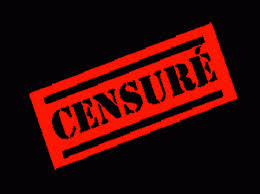censure
英 ['senʃə]
美 ['sɛnʃɚ]
- vt. 责难,责备
- n. 责难
- vi. 谴责,责备
CET6+ TEM8
censure:审说。像审问一样的批评说——责难,非难。
- censure (n.)
- late 14c., originally ecclesiastical, from Latin censura "judgment, opinion," also "office of a censor," from census, past participle of censere "appraise, estimate, assess" (see censor (n.)). General sense of "a finding of fault and an expression of condemnation" is from c. 1600.
- censure (v.)
- 1580s, from censure (n.) or else from French censurer, from censure (n.). Related: Censured; censuring.
Such men are so watchful to censure, that the have seldom much care to look for favourable interpretations of ambiguities, to set the general tenor of life against single failures, or to know how soon any slip of inadvertency has been expiated by sorrow and retractation; but let fly their fulminations, without mercy or prudence, against slight offences or casual temerities, against crimes never committed, or immediately repented. [Johnson, "Life of Sir Thomas Browne," 1756]
- 1. It is a controversial policy which has attracted international censure.
- 这是一项颇有争议的政策,引起了国际社会的批评。
来自柯林斯例句
- 2. I would not presume to censure Osborne for hating his mother.
- 我不会擅自批评奥斯本恨他妈妈这件事。
来自柯林斯例句
- 3. a vote of censure on the government's foreign policy
- 投票表决谴责政府的外交政策
来自《权威词典》
- 4. You must not censure him until you know the whole story.
- 在弄清全部事实真相前不要谴责他.
来自《简明英汉词典》
- 5. His dishonest behaviour came under severe censure.
- 他的不诚实行为受到了严厉指责.
来自《简明英汉词典》
[ censure 造句 ]
